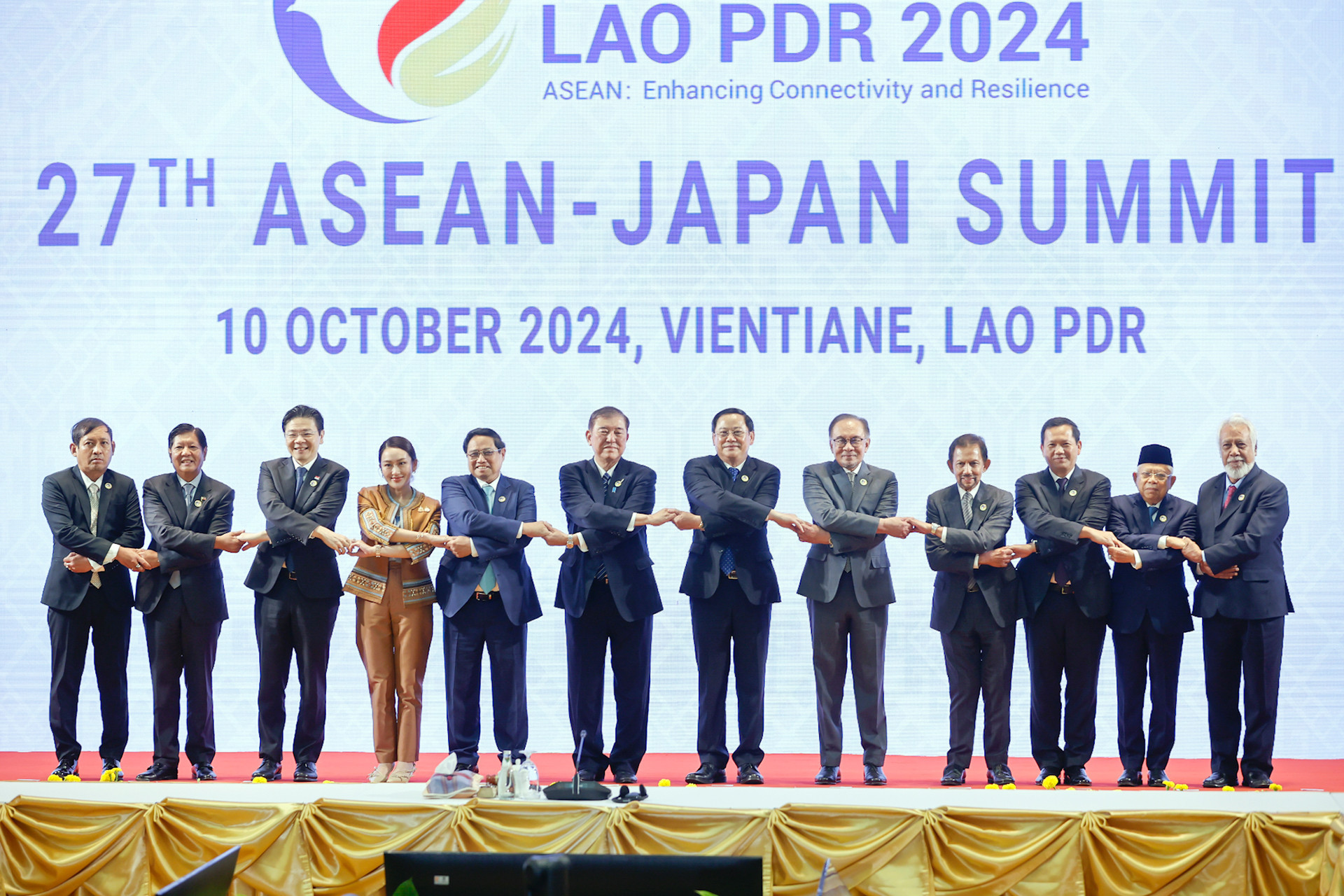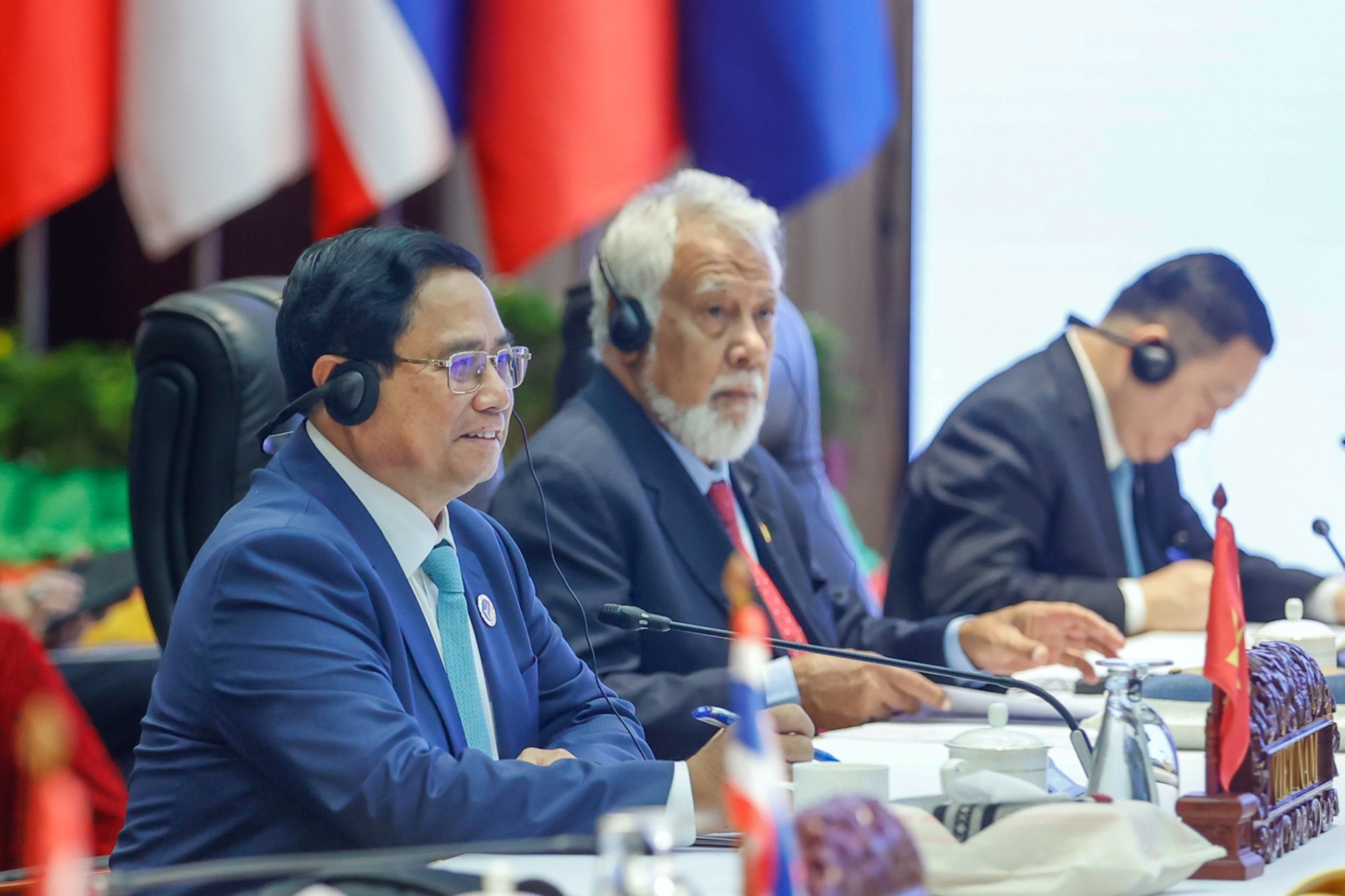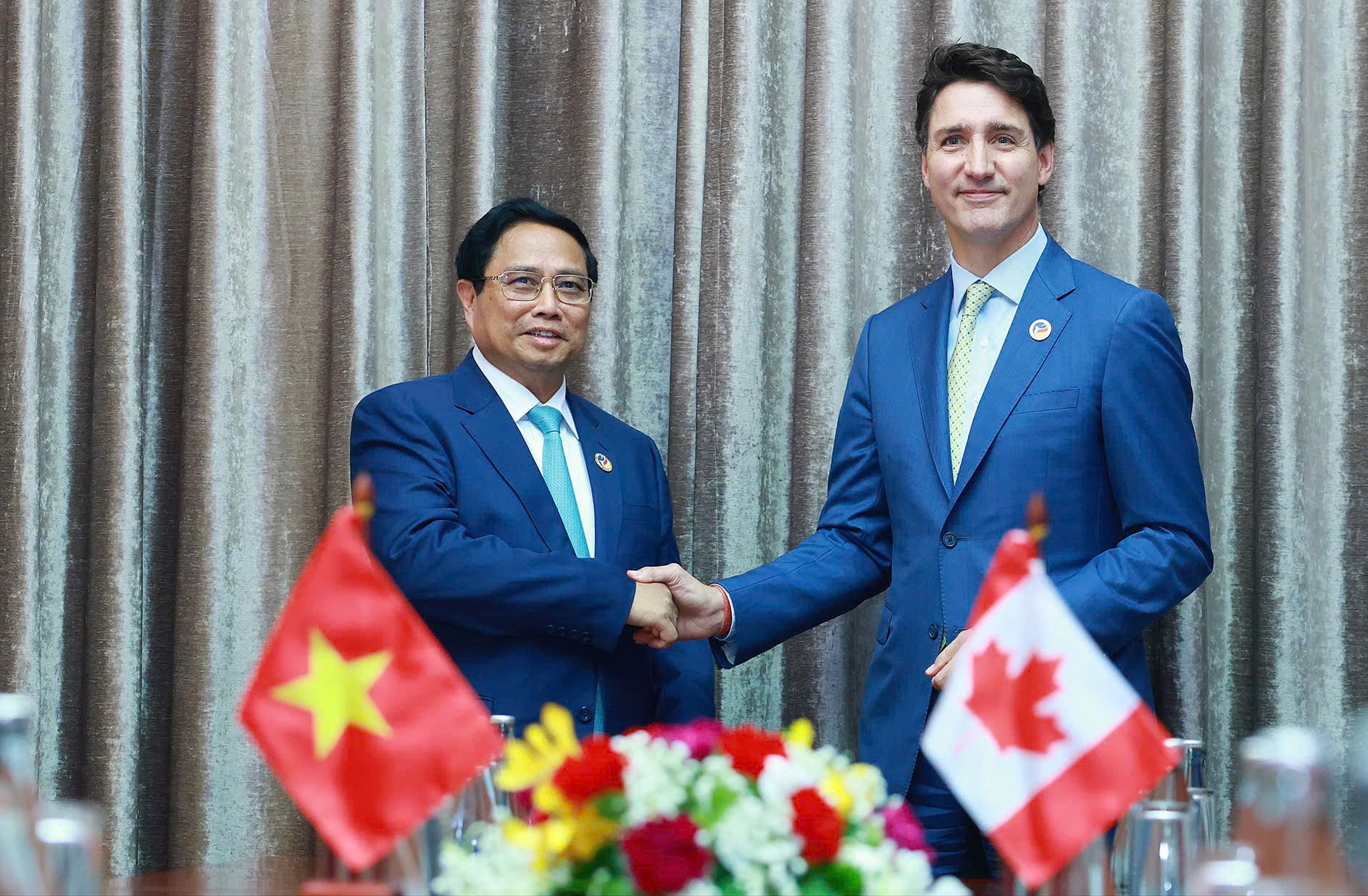On October 10, Prime Minister Pham Minh Chinh led a Vietnamese delegation to participate in the ASEAN-Japan Summit, the ASEAN+3 Summit, the ASEAN-Australia Summit, and the ASEAN-India Summit.
At the 27th ASEAN-Japan Summit, leaders praised the success of the commemorative summit celebrating the 50th anniversary of ASEAN-Japan relations held in Tokyo in December 2023 and welcomed the positive developments in their relationship over time.
Japan is ASEAN's fourth-largest trading partner, with bilateral trade reaching 239.4 billion USD; it is the fifth-largest source of foreign direct investment (FDI) in ASEAN, with 14.5 billion USD in 2023.
In his first overseas trip since taking office, Japanese Prime Minister Ishiba Shigeru emphasized the importance of the ASEAN-Japan Comprehensive Strategic Partnership, which has been continually strengthened and developed over the past 50 years based on three pillars: “partnership from heart to heart across generations,” “co-creating the economy and society of the future,” and “partnership for peace and stability.”
Prime Minister Ishiba reaffirmed Japan's commitment to enhance cooperation and support ASEAN in building a united ASEAN Community, increasing connectivity, and narrowing development gaps.

In his remarks at the summit, Prime Minister Pham Minh Chinh encouraged Japanese businesses to increase investments in ASEAN and proposed that Japan strengthen support for ASEAN businesses in joining Japanese supply chains, developing the supporting industry, and building a skilled workforce.
He also urged Japan to continue supporting ASEAN's common stance on the South China Sea, advocating for peaceful resolution of disputes, and making efforts to effectively complete the Code of Conduct in the South China Sea (COC) in accordance with international law, especially the 1982 UNCLOS, with a view to building the South China Sea into a region of peace, stability, cooperation, and sustainable development.
On the same day, Prime Minister Pham Minh Chinh led the Vietnamese delegation at the ASEAN+3 Summit. During this meeting, leaders from ASEAN and the three countries - China, Japan, and South Korea - emphasized the importance of the ASEAN+3 cooperation framework and appreciated the positive developments in ASEAN+3 collaboration over time.

In 2023, the total bilateral trade between ASEAN and China, Japan, and South Korea reached 1.1 trillion USD, while FDI from these countries into ASEAN amounted to 42.8 billion USD.
At the 4th ASEAN-Australia Summit, leaders praised the success of the special summit commemorating the 50th anniversary of ASEAN-Australia relations in March 2024. They also emphasized the continued close coordination in implementing the outcomes of this special summit to develop a substantive and mutually beneficial Comprehensive Strategic Partnership.
In 2023, bilateral trade between ASEAN and Australia reached 94.4 billion USD, with Australian FDI into ASEAN amounting to 1.6 billion USD. ASEAN and Australia will collaborate on commitments and initiatives, including the Australia for ASEAN initiative worth 204 million AUD and the Southeast Asia Investment Fund valued at 2 billion AUD.

On the same day, Prime Minister Pham Minh Chinh attended the 21st ASEAN-India Summit. At this meeting, ASEAN leaders appreciated India’s positive contributions to the comprehensive development of ASEAN-India relations.
In 2023, bilateral trade reached 100.7 billion USD, with Indian FDI into ASEAN reaching 5.63 billion USD. The number of Indian tourists visiting ASEAN in 2023 reached 4.29 million, a significant increase from 2.39 million in 2022.
Strengthening Labor Cooperation with Canada
During the ASEAN Summit in Vientiane, Laos, Prime Minister Pham Minh Chinh held a meeting with Canadian Prime Minister Justin Trudeau.
At the meeting, Prime Minister Pham Minh Chinh affirmed that Vietnam values its Comprehensive Partnership with Canada and welcomed Canada’s enhanced engagement with the region both bilaterally and through ASEAN mechanisms.
The Prime Minister suggested that both sides effectively explore opportunities for cooperation in economics, trade, and investment; enhance defense cooperation, including Canada’s support for Vietnam's participation in UN peacekeeping operations; strengthen labor training cooperation; support small and medium-sized enterprises; and address climate change and food security.
Prime Minister Justin Trudeau expressed strong agreement with Prime Minister Pham Minh Chinh's proposals, suggesting that both sides enhance high-level contacts and collaboration at all levels, effectively leverage the Comprehensive and Progressive Agreement for Trans-Pacific Partnership (CPTPP).

The two Prime Ministers also agreed to effectively implement agreements on defense cooperation, including the Memorandum of Understanding on Defense Cooperation for the period 2024-2026, and continue effective collaboration in other important areas such as labor, social issues, education, and people-to-people exchanges.
The two leaders agreed to continue close coordination in multilateral regional and global forums, especially ASEAN, the United Nations, APEC, and the Francophonie.
Proposal for World Bank preferential loans for key infrastructure projects
On October 10, Prime Minister Pham Minh Chinh met with Manuela Ferro, Vice President of the World Bank (WB) for the East Asia and Pacific region.
During the meeting, the Prime Minister welcomed the WB’s strategic vision of "Building a world free of poverty on a livable planet," focusing on sustainable development and green transition.
The Prime Minister proposed that the WB continue to support Vietnam with preferential loans for implementing key projects in high-speed rail, urban rail, seaports, and major airports.
Manuela Ferro expressed strong support for Prime Minister Pham Minh Chinh's proposals regarding prioritizing support for large-scale infrastructure development projects.
The WB Vice President committed to assisting Vietnam in deeper participation in global supply chains, maintaining economic growth, and attracting high-quality investment amid challenges in the global and regional economies.
Quang Phong